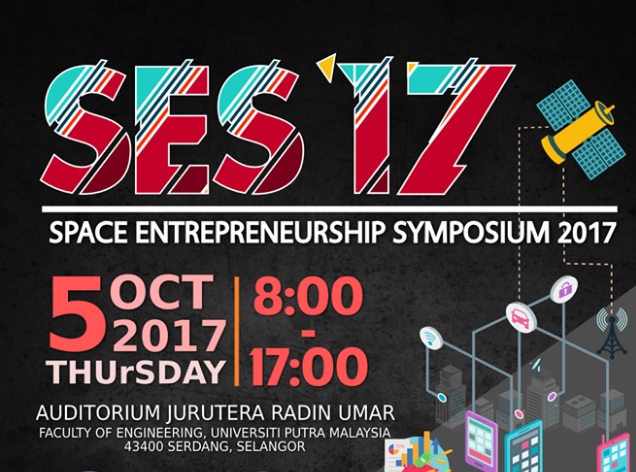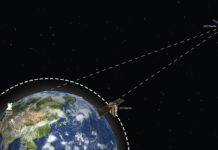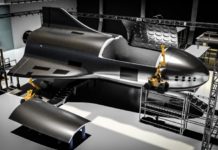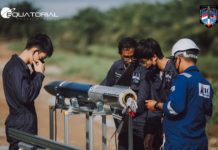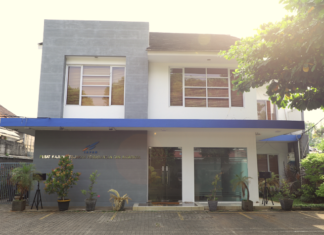On 5 October 2017, the first Space Entrepreneurship Symposium was held in Malaysia, organized by Aerospace Society Malaysia and Department of Aerospace Engineering, Universiti Putra Malaysia, along with ANGKASA and Malaysia Space Initiative – MiSI as the main co-organizers.
The day saw a series of presentations and panel discussions by government officials, academics, and other industry players. Among the topics discussed were how a developing nation can start a space industry, viable areas for space entrepreneurs in Malaysia, and the challenges faced by the Malaysian space industry.
Background on the space industry in Malaysia
Malaysia’s space industry is a small one, but growing steadily, with its space agency ANGKASA leading the charge. Established in 2002, ANGKASA is best known for sending the first Malaysian astronaut to the International Space Station (ISS) in 2007.
The country owns and operates three satellite series – microsatellite TiungSAT-1, the MEASAT family of geostationary communications satellites, and RazakSAT, an Earth Observation (EO) satellite placed into orbit by SpaceX’s first successful commercial launch in 2009.
Aside from a few large telecommunications and satellite imagery providers, Malaysia also has a small but growing NewSpace industry. Most notably, Independence X, a company founded by rocket scientist Izmir Yamin, is currently competing for the Google Lunar XPrize as part of international team Synergy Moon.
The state of the Malaysian space industry
In the presentations, it was highlighted that Malaysia is a developing economy that does not currently have the capability, nor the domestic market size, to support a high-tech space industry.
Explained Dr. Noordin Ahmad, Director General of ANGKASA, “We still don’t have the capability to build technology. We are good at services and providing integration, but we can’t even build a single chip for GPS. We used to have a company in Malaysia, but the demand is so slow that they couldn’t sustain the company. This is something that requires huge investment initially. We also lack a high-tech domestic sector.”
Dr. Noordin also highlighted a new government initiative to draw up a Space Industry Strategic Plan, in which the space industry hopes to be recognized by the government.
Government Support & Private Funding
During her presentation, Dr. Mazlan Othman, former Director of the United Nations Office for Outer Space Affairs (UNOOSA), mentioned the importance of government support in the space industry.
She said, “I have been talking to many space entrepreneurs around the world – a number from India, Indonesia, Korea, Thailand – they all say the same thing. They need, in the end, government support. Space is a difficult, unique environment to work in”.
Dr. Noordin touched upon the same point, saying, “This is the first time we’re seeing space entrepreneurs. So we’ll at least introduce you where to get the money, or get some guidelines on how to start your business, or get some help. Because in the space industry is not easy.”
She added, “Human resource is very important for space. If you invented a paperclip and you wanted to market it, you could do it alone. But if you want to build a satellite, you need a team”.
In addition, she stressed the importance of looking for private funding, “In the Malaysian ecosystem..I think we need to find [funding] ourselves. I’ve been talking to angel investors and making them relatively excited. There is crowd funding that we can explore, and this starts with you. You have to take equity in the ownership of the company, and go from there”, she said, addressing the participants.
Policy & Regulation
Dr. Mazlan also elaborated on the current government policies in Malaysia, which she said are prohibitive.
She elaborated, “The regulatory environment is not there, not just in space, but even entrepreneurship. Our national data policy is not updated for us to exploit space element, making it almost impossible to do business. Unless you take care of that, there are so many entrepreneurs who will be stopped from going into remote sensing.”
According to Dr. Mazlan, the key to changing the environment is political will.
She explained, “I don’t see much political will today. I’ll challenge ourselves to ask how we’re going to improve this political will, how we’re going to champion space, and who will do it?”
Viable industry segments for startups
To build a realistic, profitable company, the presenters agreed that space entrepreneurs should start with downstream segments such as EO and remote sensing.
Said Dr. Noordin, “The user end [of the space industry] has the greatest contribution to the economy of most countries. In Malaysia, the low-hanging fruit will be in the ground segment – this is for startups”.
Said Dr. Mazlan, “In terms of [the telecommunications and remote sensing] markets, Malaysia is at par with a lot of countries. If you look at smallsats, you don’t need sophisticated technologies. It’s how you put these together. Maybe we should not build a rocket immediately. As Dr. Noordin showed, the market is for earth applications, not access to space. Do the easy thing first, then progress becomes easier”.
Dr. Abdul Rashid Bin Mohamed Shariff, Assistant Professor at the Faculty of Engineering, Universiti Putra Malaysia, suggested using space technology to help local industry.
He explained, “I believe the user segment has great potential and new business opportunities will arise here. One of the projects I do is monitoring rice, to see how fast it is growing, and predicting the yield. If you’re an entrepreneur and you give services to support farmers, you will have business. Farmers don’t need satellites or data, but they need to know what to do, when. This is where satellite images and satellites data come in, with important facts to make their decisions”.
Dr. Mohd Fadzil bin Mohd Akhir, from the Institute of Oceanography at Universiti Malaysia Trengganu, stressed the importance of making satellite data easy to use, especially for fishermen and rural communities.
He said, “If the technology is so hard to get access to, they will not be interested. But if you can show the ease of use, they’d love to use it. But we need to appreciate the local knowledge and be within the community to understand their problems”.
Becoming a space entrepreneur
The presenters gave suggestions as to how to begin choosing a niche as a space entrepreneur.
Said Dr. Mazlan, “You have to ask yourself – what is your talent? You should see if that talent can lead to a market, and that will be your niche. What is the innovation you are aiming for? You must then address the market you are targeting.”
Dr. Shariff said, “The world is your market. Don’t let your thinking be constrained by just thinking locally. Think globally. When other countries can take advantage of the situation in Malaysia, you can take advantage of situations outside Malaysia”.
“Everything starts with a dream. Be relaxed, be creative, and see where that takes you,” he said.

